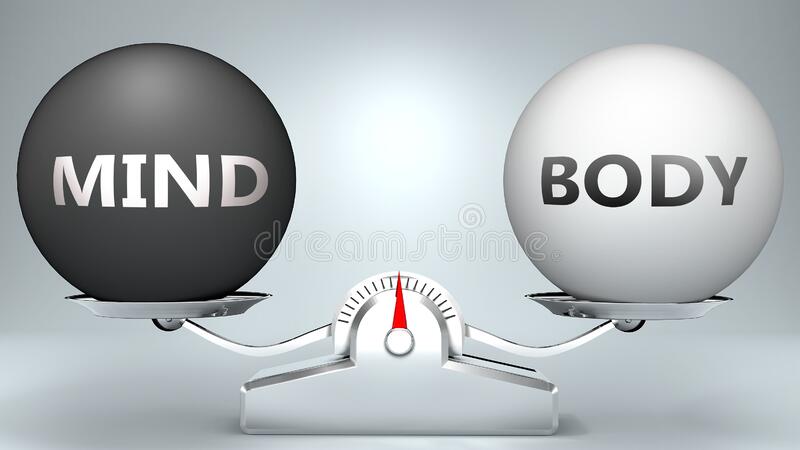Mind-Body Connection: How Mental Health Influences Physical Well-being, The mind-body connection is a powerful and intricate relationship that demonstrates how closely our mental health is linked to our physical health. Understanding this connection can help us adopt more holistic approaches to improving our overall well-being. This guide will explore how mental health impacts physical health and provide practical tips for fostering a healthier mind-body relationship.

1. The Science Behind the Mind-Body Connection
Why It Matters: The interplay between mental and physical health affects various aspects of our well-being, influencing our susceptibility to illness, our ability to recover, and our overall quality of life.
Key Concepts:
- Psychoneuroimmunology: This field studies how psychological factors, the nervous system, and the immune system interact. Stress and negative emotions can weaken the immune system, making the body more prone to infections and diseases.
- Neurotransmitters and Hormones: Mental states affect the production of neurotransmitters and hormones. For example, stress increases cortisol levels, which can lead to various physical health issues such as hypertension and weakened immunity.
- Inflammation: Chronic stress and mental health disorders like depression are linked to higher levels of inflammation in the body, contributing to conditions such as heart disease and arthritis.
2. Effects of Mental Health on Physical Health
1. Stress and the Body
Why It Matters: Chronic stress has a profound impact on physical health, contributing to various ailments.
Effects:
- Cardiovascular Health: Prolonged stress can lead to high blood pressure, increased heart rate, and a higher risk of heart disease.
- Digestive System: Stress can cause digestive issues like irritable bowel syndrome (IBS), stomach ulcers, and acid reflux.
- Immune System: Chronic stress weakens the immune system, making the body more susceptible to infections and slower to recover from illnesses.
2. Depression and Physical Health
Why It Matters: Depression affects more than just mood; it has significant physical health implications.
Effects:
- Chronic Pain: Depression is often linked with chronic pain conditions such as back pain, headaches, and arthritis.
- Fatigue and Sleep Disorders: Depression can lead to insomnia or excessive sleeping, both of which affect physical health.
- Heart Health: Individuals with depression are at a higher risk of developing cardiovascular diseases.
3. Anxiety and Physical Health
Why It Matters: Anxiety disorders can manifest physically, impacting overall health and quality of life.
Effects:
- Muscle Tension: Chronic anxiety can lead to persistent muscle tension, resulting in pain and discomfort.
- Respiratory Issues: Anxiety can cause shortness of breath and exacerbate conditions like asthma.
- Gastrointestinal Problems: Anxiety is linked to stomach issues, including nausea, diarrhea, and irritable bowel syndrome (IBS).
3. Promoting a Healthy Mind-Body Connection
1. Mindfulness and Meditation
Why It Matters: Mindfulness practices can reduce stress, improve mood, and enhance overall well-being.
How to Practice:
- Mindfulness Meditation: Spend a few minutes each day focusing on your breath and observing your thoughts without judgment.
- Progressive Muscle Relaxation: Gradually tense and then relax each muscle group in your body to reduce physical tension.
- Guided Imagery: Use visualization techniques to imagine a peaceful scene, helping to relax your mind and body.
2. Physical Activity
Why It Matters: Regular exercise boosts both mental and physical health, reducing symptoms of depression and anxiety.
How to Incorporate:
- Aerobic Exercise: Activities like walking, running, and cycling release endorphins, which improve mood.
- Strength Training: Building muscle can boost self-esteem and reduce symptoms of depression.
- Yoga and Tai Chi: These practices combine physical movement with mindfulness, reducing stress and promoting relaxation.
3. Healthy Nutrition
Why It Matters: Diet affects both mental and physical health, influencing energy levels, mood, and overall well-being.
Tips for Healthy Eating:
- Balanced Diet: Include a variety of fruits, vegetables, whole grains, lean proteins, and healthy fats in your diet.
- Omega-3 Fatty Acids: Found in fish, flaxseed, and walnuts, omega-3s are known to improve mood and reduce inflammation.
- Limit Sugar and Processed Foods: Reducing intake of sugary and processed foods can stabilize mood and energy levels.
4. Adequate Sleep
Why It Matters: Sleep is crucial for mental and physical recovery, influencing mood, cognitive function, and immune health.
Tips for Better Sleep:
- Regular Sleep Schedule: Go to bed and wake up at the same time every day, even on weekends.
- Sleep Environment: Create a quiet, dark, and cool sleeping environment.
- Avoid Stimulants: Reduce intake of caffeine and electronics before bedtime to improve sleep quality.
5. Social Connections
Why It Matters: Strong social connections provide emotional support, reduce stress, and enhance overall well-being.
How to Foster Connections:
- Stay Connected: Maintain regular contact with friends and family through calls, messages, or in-person visits.
- Join Groups: Participate in community groups, clubs, or classes that interest you.
- Volunteer: Engaging in volunteer work can improve mood and create a sense of purpose and community.
4. Seeking Professional Help
Why It Matters: Professional guidance can provide personalized strategies for improving mental and physical health.
When to Seek Help:
- Persistent Symptoms: If you experience chronic stress, anxiety, or depression that interferes with daily life, seek help from a mental health professional.
- Integrated Care: Look for healthcare providers who understand the mind-body connection and can offer integrated care approaches.
- Support Groups: Joining support groups can provide shared experiences and coping strategies from others facing similar challenges.
Conclusion:
The mind-body connection plays a critical role in overall health and well-being. By understanding how mental health influences physical health and adopting strategies to promote a healthy mind-body relationship, you can enhance your quality of life. Incorporate mindfulness practices, regular exercise, healthy nutrition, adequate sleep, and strong social connections into your routine. Remember, seeking professional help when needed is essential for managing mental health and maintaining physical well-being.
